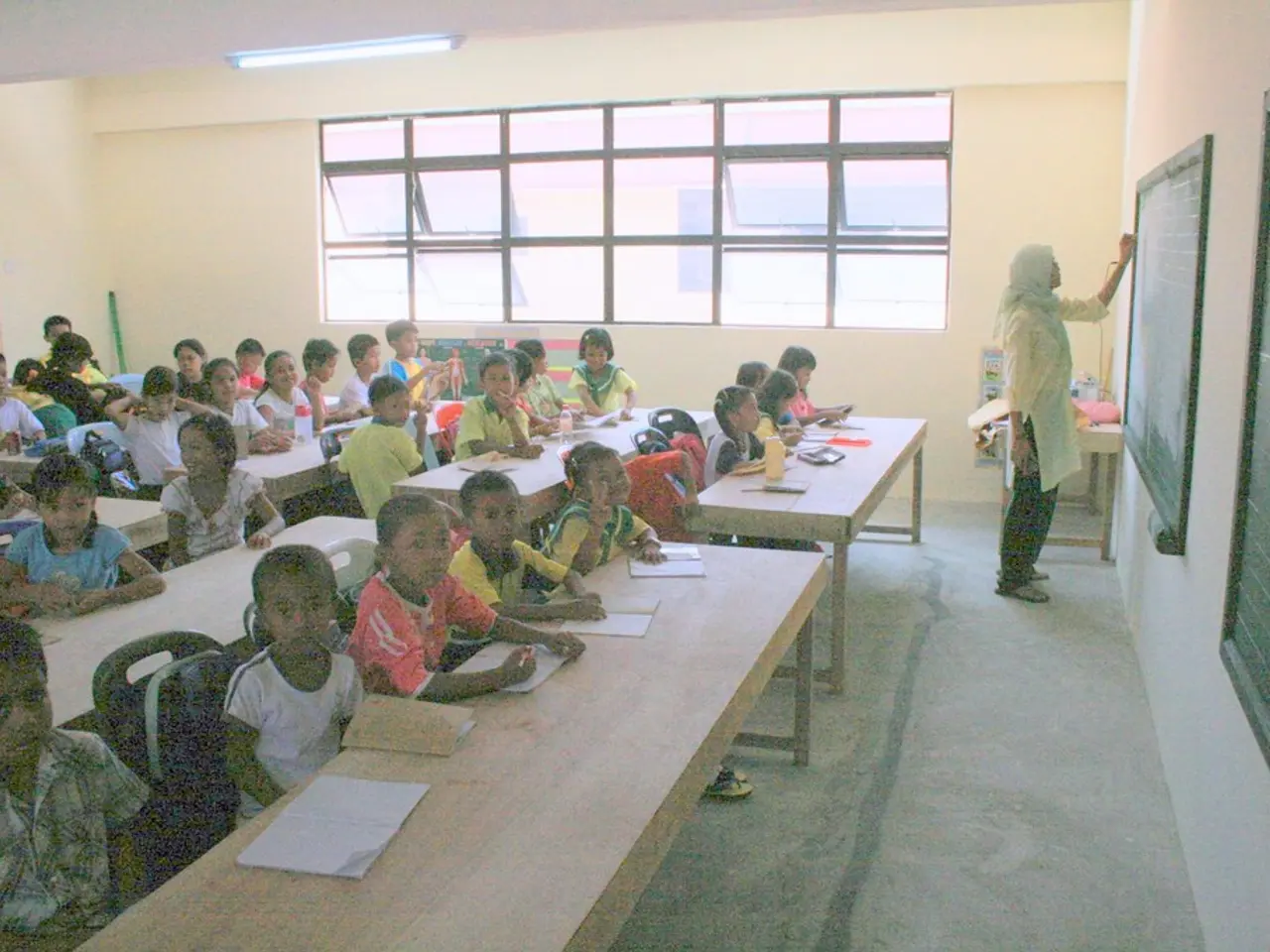Struggles in Preschool: Criticism over fees and instability - Workers' Safeguard Proposal: Commission Requested for Radiation Protection Directive, Accounting for Occupational Hazards from Ionizing Radiation.
Struggles in North Rhine-Westphalia's Kindergartens: Instability, Escalating Costs, and Staff Shortages
The early childhood education landscape in North Rhine-Westphalia (NRW), Germany, is currently grappling with significant challenges, including instability, escalating costs, and staff shortages. These issues are causing concerns for both parents and the education system.
Key Challenges
- Kindergarten Instability: Kindergartens in NRW face operational uncertainties due to fluctuating demand, administrative changes, and funding gaps, resulting in disruptions in childcare availability.
- Fees: Although Germany traditionally subsidises early childhood education, escalating costs in some NRW municipalities can place financial strain on families, particularly those with lower incomes. Fees often vary widely depending on the specific location and type of daycare setting.
- Staff Shortages: A notable shortage of qualified kindergarten educators and caregivers is affecting NRW, reflecting a nationwide trend. This lack of skilled personnel leads to increased workloads, reduced quality of care and education, and sometimes limits the number of children that can be accepted into kindergartens.
Effects on Parents and the Education System
- For Parents: These challenges mean parents often struggle to secure reliable and affordable care for their children, impacting their ability to work or pursue education. Increased fees and limited places especially burden low-income families, while instability and staff shortages can reduce trust in the system.
- For the Education System: Staff shortages lead to higher staff-to-child ratios and potential burnout, deteriorating educational quality. Instability can delay developmental progress for children and complicate long-term planning for both institutions and regional authorities.
Solutions and Responses
In response to these issues, NRW and federal authorities have been considering and implementing several strategies:
- Recruitment and Training Initiatives: Efforts to attract new educators through improved pay, better working conditions, and expanded training opportunities aim to alleviate staff shortages.
- Fee Regulation and Subsidies: Some municipalities have introduced or expanded fee caps and subsidies to contain costs for families and increase access equity.
- Investment in Infrastructure and Stability: Increased public funding targets kindergarten infrastructure to reduce organizational instability and enhance capacity.
While direct up-to-date reports from official NRW educational authorities or policy documents were not found, these challenges and solutions align with well-documented trends in German early childhood education sectors as of 2024–2025.
Ongoing Developments
- The Ministry of Family Affairs has stated that the state government is working on a Kindergarten social index to improve support for children in challenging situations.
- The SPD has criticized Family Minister Josefine Paul for not providing a statewide overview of parental fees and catering costs in Kindergartens (Kitas).
- In Velbert, fees will be charged for the first time this year for households with an income of 80,000 euros or more.
- The German Youth Institute has reported a skills shortage in Kitas this Kindergarten year.
- In several cities such as Dortmund, Rheine, Arnsberg, Erkelenz, Coesfeld, Warendorf, and Velbert, Kindergarten fees are expected to increase in the new year.
- The result is a patchwork of fees, with free childcare for children aged three and above in some cities and several hundred euros per month for younger children in a middle-income household in others.
- NRW Family Minister Josefine Paul aims to achieve more stability and reliability in early childhood education in the coming year.
- Despite the instability and staff shortages in Kitas, the SPD sees little hope for improvement in the current situation due to the lack of a roadmap from the state government.
In response to the challenges faced by parents and the education system in North Rhine-Westphalia (NRW), the state government has initiated measures, such as recruitment and training initiatives, fee regulation and subsidies, and investment in infrastructure and stability to address instability, escalating costs, and staff shortages in kindergartens. These efforts aim to improve the quality of early childhood education (education-and-self-development) and promote personal growth (personal-growth) among children. Simultaneously, ongoing developments like the implementation of a Kindergarten social index, changing fees in various cities, and criticisms from political parties highlight the urgency of comprehensive solutions for a stable, accessible, and equitable learning environment for all NRW children.




